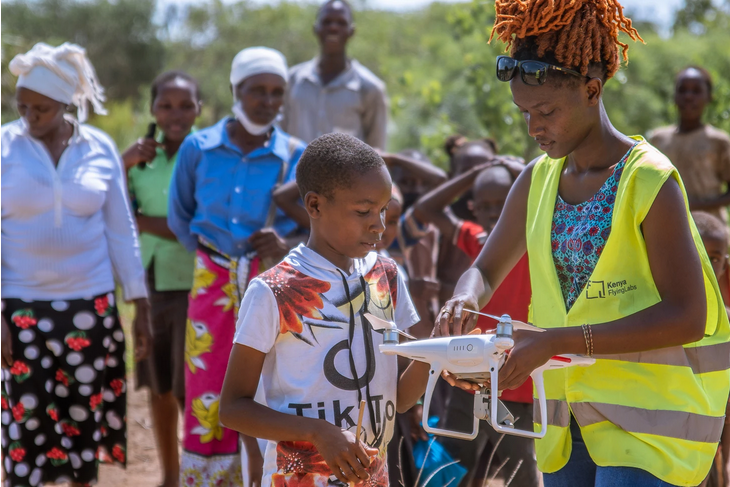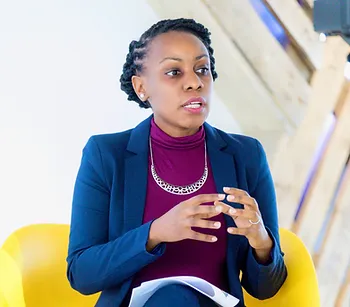
THE FUTURE IS ROBOTIC

When people think of drones, they may probably consider their use in photography, videography, or even military combat – as depicted in some movies. Cleopa Otieno, Kenya Flying Labs Chief Executive Officer, envisioned a much broader use for drones and robotics. With a background in ICT, Cleopa spent large chunks of his time around technology, which then sparked his interest on how technology could be used to support humanitarian causes.
About Kenya Flying Labs
Kenya Flying Labs is part of a wider network of Flying Labs in Africa, Asia, and Latin America that build on existing expertise in drones, data and Artificial Intelligence (AI). Although Kenya Flying Labs was officially registered in the year 2020 as a non-profit company, they have been in existence since the year 2017. Their services are mainly biased towards humanitarian causes but also span into areas such as precision agriculture (use of technology to increase crop yields), infrastructure inspection, mapping and survey as well as search and rescue. Their biggest interest he reckons is to address the data side of the equation, turning data into actionable insights.
Kenya Flying Labs is driven by the idea of localizing technology to address conservation, development and health sectors as well as building local capacity to avoid over-reliance on external support. Most of their work includes field work such as working with farmers to collect farm data in order to increase crop yield, use of aerial imagery from drones, AI and collective intelligence to predict deadly outbreaks such as Cholera, use of drones to enhance cellular connectivity for people who are difficult to reach and mentoring young people on coding.
Youth and technology

The legacy the Team at Kenya Flying Labs would like leave would be an empowered youth, well equipped for innovation and a world ripe with technology. As such they often run training programs, under their youth robotics program, with various organisations to enable young people to interact with robotics and AI.
Challenges
One of the major challenges Kenya Flying Labs faces is the nuance of their field. A lot of work is required around sensitisation of organisations and companies in Kenya to embrace this new technology. Another challenge is the high cost of the drones which is likely to trickle down to customers. One challenge, which has however been addressed, is the issue of drone regulations. Kenya now has laws governing use of drones and one can import, register and use them freely.

Future projects
Apart from raising awareness in communities on the uses of drones and robotics, Cleopa and his team aim to be the
leading humanitarian robotics agency in the region, providing capacity and support through building skills in robotics. They are currently working on projects to train community first respondents using drones, promoting the use of technology in various sectors in Kenya such as in mapping and survey.
Awards
Kenya Flying Labs have come a long way since their inception and recently received the Humanitarian Team Award 2020 for their primary focus of using drones for good and having a culture of inclusiveness where women are engaged in key roles on the team and in leadership positions. Anne Nderitu, Research and Development Engineer at Kenya Flying Labs, is the first female fixed-wing drone pilot in Kenya. Kenya Flying Labs are also semi-finalists in this year’s 2021 Cisco Global Problem Solver Challenge.
Sustainable Development Goals (SDGs)
The work of Kenya Flying Labs supports a number of SDGs including Goal 2 (Zero hunger), goal 3 (Good health and Well-being) and Goal 9 (Industry innovation and infrastructure).
Contacts
Kenya Flying Labs can be contacted through their website: https://flyinglabs.org/kenya


